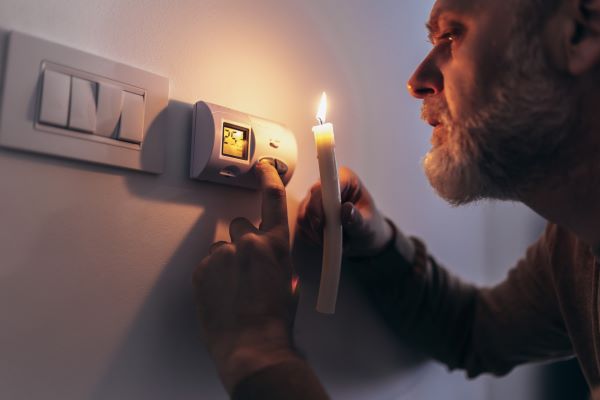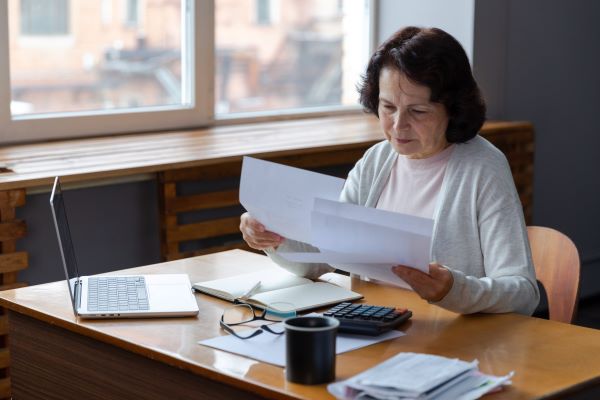Social Security serves as a federal initiative aimed at providing a support network for the…
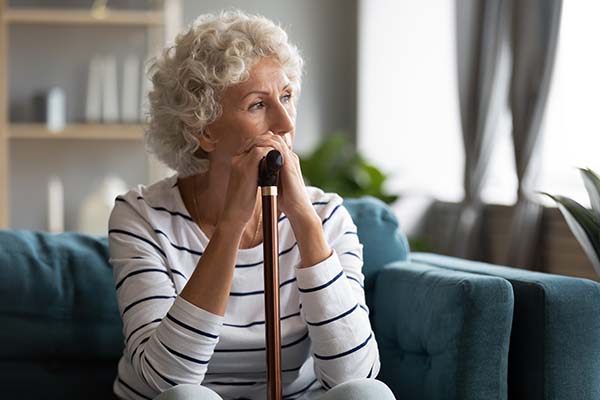
Elder Abuse Rising With The Help Of COVID-19
Elder abuse manifests itself in many different ways and may present itself in older adults’ lives concurrently. Sadly, elder abuse events are significantly underreported. The National Council on Aging reports that estimates range as high as five million older adults experience abuse every year or about one in ten. A study by The National Institutes of Health (NIH) estimates that only one in fourteen cases are reported to authorities. The number of abuse cases is increasing during the coronavirus pandemic as family and caretakers struggle under the strain of uncertainty and pressures of survival. Fully two-thirds of perpetrators of violence against elders are adult children or spouses.
Abuse includes physical, emotional, psychological, financial, or sexual abuse, and neglect or abandonment. The impact of the abuse comprises a host of issues in the elderly, including:
- Physical abuse can bring about unusual weight loss, bedsores, bruises or skin damage, broken bones, malnutrition and dehydration, pain gestures when the older adult is moving or touched, and higher mortality risk
- Incidences of distress, depression, mental health decline, anger, anxiety, confusion, fear, sleep disorders, helplessness, PTSD, non-responsiveness, and withdrawal often accompany emotional, psychological, and sexual abuse
- Financial abuse can bring about loss of home, inability to pay for utilities or medication, reduce medical treatment, drain of retirement savings, theft, and more.
These underlying biological, social, financial, and psychological vulnerabilities are magnified as elderly individuals are disproportionately affected by social distancing policies and other restrictions to stop the spread of COVID-19. The loss of an elder’s social network makes it easier for an abuser to escape having their behavior cross-referenced by others. Caregiver and relative abuse indicators include:
- Speaking for the older adult who is capable of expressing themselves
- Stories that conflict between the older person and the caregiver or family member
- Discernable substance abuse by the caregiver or family member
- Restricting the activities of or socially isolating the older adult
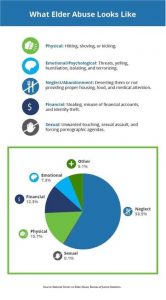
Collectively, as a nation, negative attitudes pose significant risks to older adults’ health and well-being. For example, on social media platforms, the hashtag #BoomerRemover is trending and often is accompanying disparaging and devaluing memes. During the pandemic, public discourse increasingly portrays Americans over the age of 70, even 65, as frail, helpless, and unable to contribute to society. Since the coronavirus pandemic’s start, a massive increase in elder abuse reports occurs. Still, the abuse is probably being underreported. Family violence, financial scams, and neglect are heightened by the pressures all Americans feel due to coronavirus.
Adult Protection Services (APS) are available to victims of abuse or suspected abuse and are run by local or state health departments. While these agencies and departments investigate elder abuse, fewer financial resources are chasing increasing abuse cases. There is also insufficient access to data needed to resolve issues, inadequate administrative systems, and a lack of cross-training with the other agencies and disciplines in the aging field who serve clients, some with mental health disabilities.
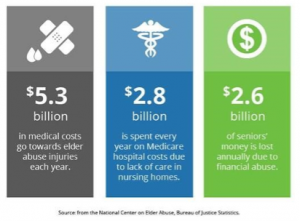
Two of the more important federal acts that address elder abuse are the Older Americans Act (OAA) and the Elder Justice Act (EJA). Yet, these acts’ effectiveness has been diluted with a lack of funding and relaxed enforcement. According to Forbes, the EJA has less than 10 percent of the funding it was authorized to receive, and one of EJA’s main goals is to dedicate funding to Adult Protective Services. Underreporting, denial of, and underfunding of acts designed to protect older Americans from elder abuse is a significant problem in enforcing existing laws. Policy change requirements are needed to increase the protection of the elderly from abuse during the coronavirus pandemic and beyond.
Since help to identify and prevent elder abuse can be difficult to come by, older adults can employ several actions to reduce their risk of being victimized. To stay safe, it is important to:
- Maintain an active, positive, and healthy lifestyle, decreasing the chance of being vulnerable to abuse
- Routinely and actively monitor all financial accounts
- Make use of a living will that specifies future healthcare decisions
- Periodically review their will to ensure there are no unauthorized changes
- Safely guard personal information by not providing information to persons on the phone, in email, in social media platform postings, and open all mail
- Seek assistance for any family member with whom they have close contact that is experiencing substance abuse issues, abnormal behaviors like depression, or coping with the loss of income due to the pandemic
- Know your rights, stand your ground, and voice your opinions
Elder abuse is a criminal, civil, and moral offense. Victims vary by age, gender, background, and status, and the abuse can be domestic or institutional. There are ways to protect yourself or a loved one from financial abuse or fraud. If you have questions or would like to discuss how to mitigate the risk of elder abuse or fraud through legal planning, please don’t hesitate to reach out. Please contact our Heber Springs, Arkansas office at 501-365-3934.


